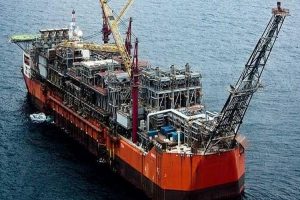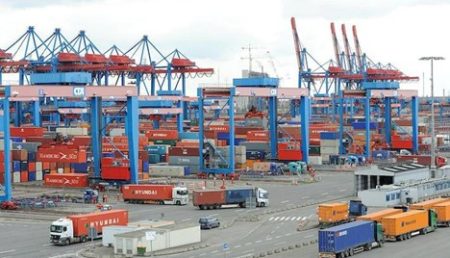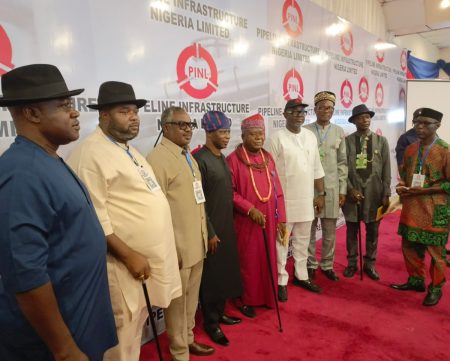
OpeOluwani Akintayo
Lagos — Despite a revised commercial framework said to have been embraced by the Nigerian government and the project investors, Shell Nigeria’s subsidiary, SNEPCo, and others in February 2018, the $10 billion Bonga South West Aparo, BSWA, oil and gas project is again experiencing a setback, SweetcrudeReports has learnt.
Shell had in 2016, announced the first setback due to crash in oil prices from over $100 per barrel to below $30 per barrel.
Latest information available to SweetcrudeReports shows that uncertainty over future fiscal terms, especially the revised Petroleum Governance Industry Bill, PGIB, has again delayed the final investment decision on the project expected to produce 200,000 barrels of oil per day, roughly 10% of Nigeria’s current oil production.
“If the Nigerian government does not pass the bill as expected this year, the Bonga South West Aparo will face an exceptional delay. The project is already behind schedule as you well know”, a source close to the matter told SweetcrudeReports.
“If the project keeps being postponed, money to be invested in it may further reduce,” another source said.
In announcing the initial delay, the Chief Executive Officer, Royal Dutch Shell Plc, Ben van Beurden, had in a statement said it was postponing the final investment decision on the project after the company’s adjusted profit fell by 56 percent in the forth quarter of 2015, compared to a year earlier, while its earnings fell by 80 percent to $3.84 billion, compared to $19 billion in 2014.
Over 40 firms to bid for project Bonga South West Aparo
“We are making substantial changes in the company, reorganising our upstream, and reducing costs and capital investment, as we refocus Shell and respond to lower oil prices. As we have previously indicated, this will include a reduction of some 10,000 staff and direct contractor positions in 2015-16 across both companies”.
“For 2016, we have exited the Bab sour gas project in Abu Dhabi, and are postponing final investment decisions on LNG Canada and Bonga South West in deep-water Nigeria. Operating costs and capital investment have been reduced by a total of $12.5bn as compared to 2014, and we expect further reductions in 2016,” the Shell CEO said.
However, hope on the project was rekindled in February last year, after SNEPCo announced the release of Invitation to Tender, ITT, to contractors for the development of the oil field.
Shell said the project’s initial phase included a new Floating, Production, Storage and Offloading, FPSO, vessel, more than 20 deep-water wells and related subsea infrastructure.
The field lies across OML 118, 132 and 140, about 15km southwest of the existing Bonga Main FPSO.
“This is a new vista for deep offshore oil and gas exploration in Nigeria based on a revised commercial framework embraced by government and the project investors,” SNEPCo’s Managing Director, Bayo Ojulari said a day after the execution of the Heads of Terms by the Nigeria National Petroleum Corporation, NNPC, SNEPCo and its unit partners, revising the terms of the OML 118 Production Sharing Contract.
However, uncertainty over future fiscal terms, especially the revised Petroleum Governance Industry Bill, PGIB, has again delayed the final investment decision on the project which is expected to produce 200,000 barrels of oil per day, roughly 10% of Nigeria’s current oil production.
After over a decade of going back and forth on the PGIB, President Muhammadu Buhari, in February said he had begun consultation with the legislature, and that the Bill would be drafted “from scratch” and passed into law this year.
The revised edition of the Bill was presented to the National Assembly last month, SweetcrudeReports learnt.
Already, oil multinationals are beginning to slow down on investments and putting their monies elsewhere due to delay in passing the PGIB into law. Firms such as Chevron is already selling some of its stakes in the country. French oil giant, Total has also divested its 12.5% stake in the Bonga main field, the Bonga North West, the Bonga North and the Bonga South West structures.
In another move, Panoro Energy ASA has also agreed to sell its entire stake in OML 113 (Aje field) to PetroNor E&P Limited, while Africa Oil Corp. is purchasing stakes belonging to Vitol and Warbug Pincus-owned Delonex Energy in Petrobras’ assets in deepwater Nigeria.
The PIGB, when finally passed into law, will overhaul Nigeria’s petroleum sector with regards to taxation and other affairs.
The bill will be passed by the end of 2020, according to the Senate President, Sen. Ahmed Ibrahim Lawan.
“We believe that this time around, the ninth National Assembly will break the jinx and should be able to pass the Petroleum Industry Bill,” he said via his Twitter account.
The Bonga project itself, which began producing oil and gas in 2005, is Nigeria’s first deep-water development in water depths over 1,000 metres. In 2014, SNEPCo started oil production at the Bonga North-West deep-water development, with the oil transported by a new undersea pipeline to the existing Bonga FPSO and export facility.



